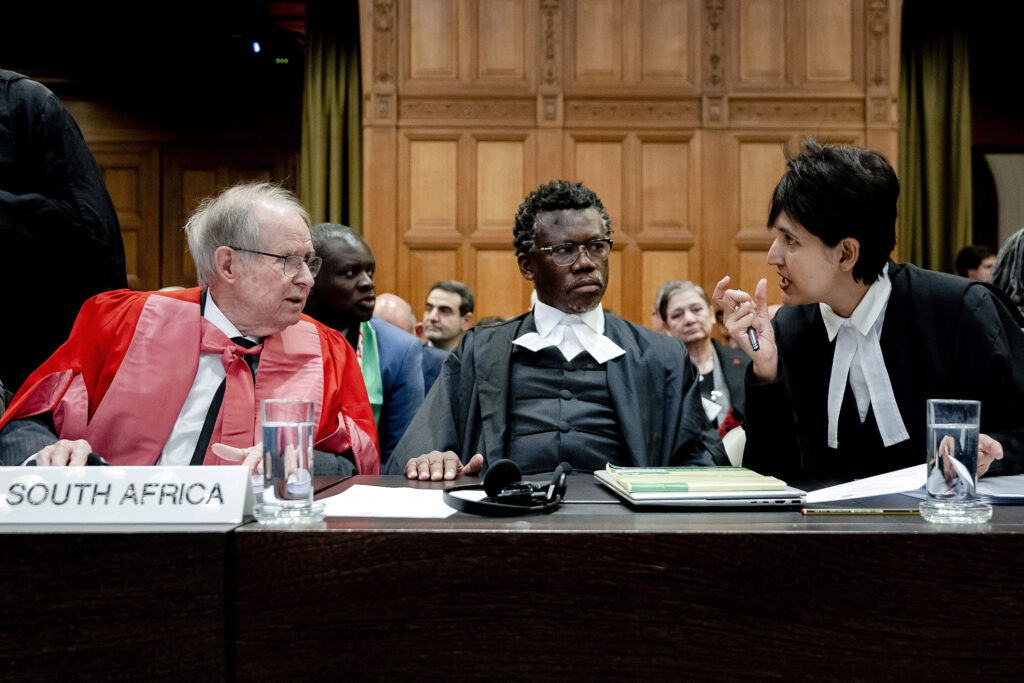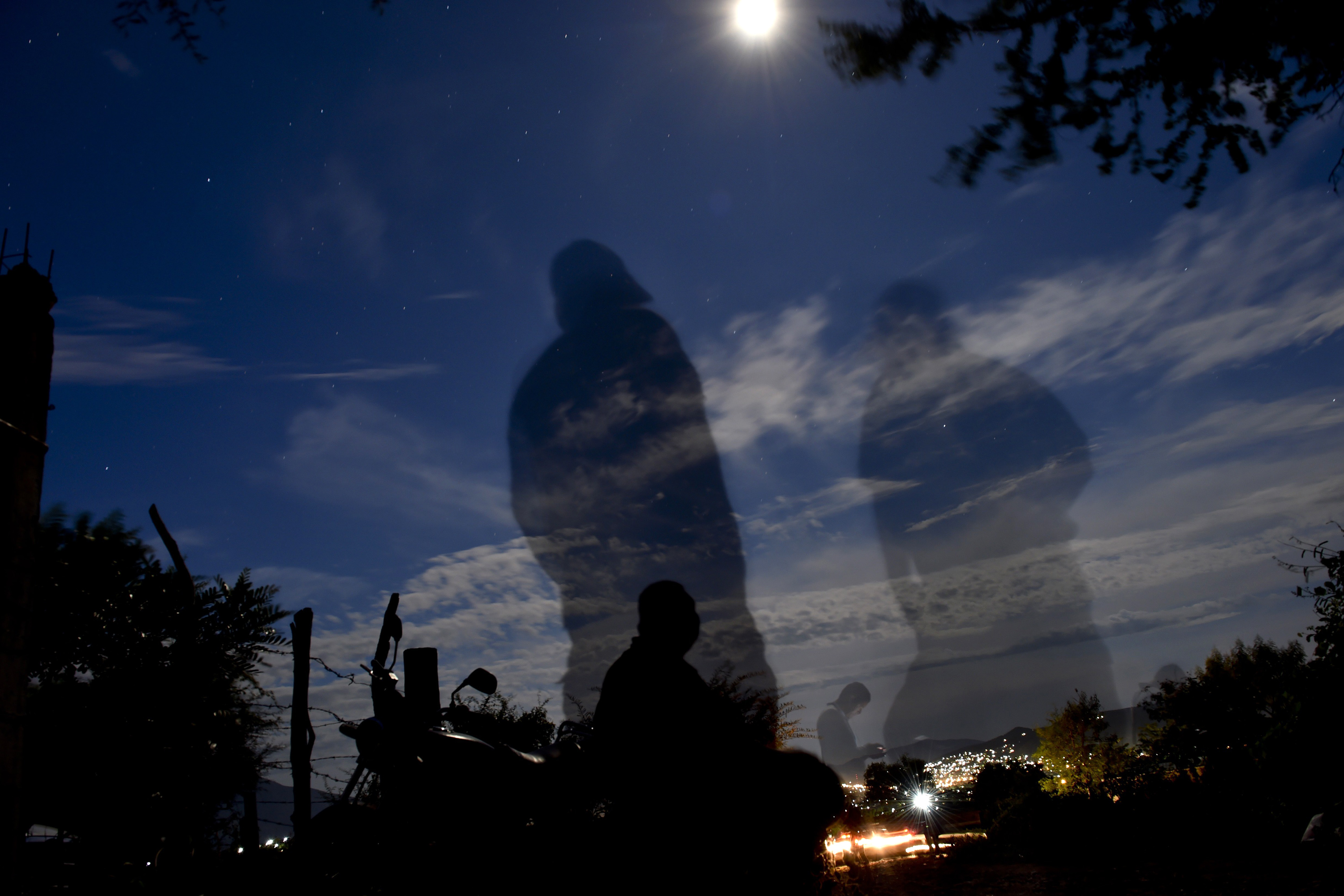Truth is a casualty of the last century. From the Death of God to the curious disappearance of the human in the Age of AI, truth’s social standing is precarious and weather-beaten. In a remarkably original essay on memory and violence, Mexican writer Tessy Schlosser ventures deeply into the bowels of truth’s fragility.
UK-based author and editor John Merrick follows with no simpler a subject: the miserable mainstreaming of racial and ethnic politics in today’s Britain. Focusing on the writings of Kings College historian David Betz, Merrick grapples with the ways that reactionary ideas have become all too commonplace.
Finally, Imraan Buccus, a South African scholar and journalist, considers the paradoxes in his country’s governance, from its avant garde foreign policy to its rearguard domestic politics. South Africa is mired in contradiction and Buccus helps to explain why.
Our curated section kicks off with a startlingly original essay from Matthew Rochat on how the concept of guanxi can help understand the relational dimensions of global politics. We follow with a closer look at Nobel laureate Maria Ressa, who has been celebrated the world over for her extraordinary work on behalf of the freedom of expression. This essay, published in Media Asia, considers another side of Ressa’s activities, one less cloaked in glamor.
Next, a video that features Regina Rini and her sharp conception for a new public philosophy for the contemporary moment. And we conclude Ideas Letter 52 with a four-part podcast series you may have missed—Overshoot—which asks, soberly yet concerningly, what happens when the world crosses the 1.5-degree-centigrade threshold.
In other exciting news, we have gathered a selection of essays from our first fifty issues into an anthology, a smorgasbord of intellectual inquiry, which is now out and online.
For our musical selection, listen to Sir Roland Hanna (he cherished the honorific bestowed on him in 1970 by President William Tubman of Liberia), a pianist of great variety. His classical background gives his playing a rigorous form; his stride and modern jazz roots make it swing. All these influences are evident in Hanna’s interpretation of the postwar jazz standard “Autumn Leaves” from 1973.
—Leonard Benardo, senior vice president at the Open Society Foundations
Calendars of Truth

Tessy Schlosser
The Ideas Letter
Essay
Schlosser reflects on how contemporary rituals of remembrance—from Mexico’s annual Ayotzinapa marches to the liturgical cycle of Yom Kippur—expose the limits of truth as redemption or revelation. Through the figures of Antigone, Cassandra, and Jonah, she traces how truth-telling moves through defiance, disbelief, and despair, less as an act of liberation than as a struggle to live with what cannot be resolved or forgotten. Schlosser reimagines truth not as a fixed deliverance of justice but as a restless, time-bending act that unsettles power, mourns without closure, and resists both silence and sanctification.
“So what is truth’s work? It does not always reveal. It does not always redeem. It rarely saves. It is also almost impossible to ignore once you feel it. It marks. It ruptures. Truth does not live in the clarity of facts alone. It interrupts time’s neat procession. It coils itself inside multiple calendars, inside rituals, inside an absence we cannot quite name or let go of. It breathes through mouths that shouldn’t speak yet still do. It shudders in the grave, in the gaps between perception and reality, in the belly. Sometimes it compels. Sometimes it curses. Sometimes it does nothing at all, or worse, it does the opposite of what we wanted it to do.”
All Betz Are Off

John Merrick
The Ideas Letter
Essay
Once solely the language of the far-right fringe, warnings of an impending “civil war” in Britain have gone mainstream, carried by figures like David Betz, a professor at King’s College London whose dark prophecies of ethnic conflict now circulate through major conservative media. Betz’s vision—a society undone by multiculturalism, elite weakness, and the erosion of a common national identity—casts social collapse not as a political failure but as a natural and racial inevitability. Merrick argues that such fatalistic narratives, couched in academic respectability, transform old racist anxieties into policy respectability, preparing the ground for Europe’s new politics.
”In the sudden topicality of Betz’s work, from obscure online magazines and academic monographs to a darling of the right-wing poderati, an air of respectability has been given to ideas that would until recently have been considered beyond the pale. Betz is, after all, an elite academic, ensconced in one of London’s most prestigious universities. Perhaps this is why he stops short of explicitly endorsing ideas like those of the Great Replacement, whose conspiracist implications remain far too grubby and whose far-right origins far too apparent. There is also one key respect in which Betz differs from many proponents of the Great Replacement theory. There is no prescriptive element in his diagnosis of what’s coming. What Betz stops short of above is advocating for the downtrodden indigenes to rise up against the Black and brown invaders. … Equally, however, we cannot divorce his work entirely from the grotesque displays of nativism and racism now common on large parts of the right. In fact, by putting up his work firmly against this resurgent and hardened far-right, we can begin to see the contours of something on which Betz has so far been coy: Just who will be on the other side of the coming civil war, facing now-assertive and racially conscious whites?”
Insurgent Legality

Imraan Buccus
The Ideas Letter
Essay
South Africa’s genocide case against Israel at the International Court of Justice projects the moral legacy of the anti-apartheid struggle onto the global stage, even as the country is racked at home by corruption, xenophobic violence, and political assassinations. Western governments and South Africa’s white liberal establishment condemned the move, but Buccus traces its roots to long-standing ANC–PLO solidarities and a domestic culture of “insurgent legality.” The effort has helped seed new confidence in the Global South, reframing human rights from below and exposing the West’s selective universalism—but it also leaves open the question of whether South Africa, or international law itself, can live up to the principles they so eloquently invoke.
”Nonetheless, South Africa’s action has forced this question of moral and legal consistency onto the global stage. What remains to be seen is whether the promise of rights as a shared human inheritance will be realized, or whether it will remain trapped in the antinomies that have long defined the international order.”
Guanxism and Global Politics
A Rising Paradigm in International Relations Theory
Matthew Rochat
International Politics
Essay
Rochat contends that the Chinese notion of guanxi—traditionally understood as a network-based moral economy of obligation, trust, and role-based reciprocity—has transcended its domestic origins to emerge as a paradigm for global politics, capable of challenging the individualist, legalist assumptions of Western-dominant International Relations theory. Drawing on Confucian ethics, the scholarship of Chinese IR thinkers, and bibliometric analysis that shows guanxi’s growing presence in Anglophone debates, the author argues for a relational ontology of world politics in which actors are constituted through relationships, legitimacy is performative and moral rather than procedural, and hierarchies are sustained more by social roles than coercive balance.
“What makes guanxi especially relevant to international relations is its relational epistemology. Rather than seeing actors as bounded entities who enter into relationships based on interest or utility, guanxi assumes that actors are defined through their relationships. The relationship is not a means to an end, but a site of identity formation, ethical judgment, and political meaning. This stands in sharp contrast to dominant IR theories, which often treat relationships as transactional or structural. … Guanxi offers a different vision. It suggests that international order may be constituted through moral obligation, role performance, and differentiated reciprocity. It allows for hierarchy, asymmetry, and emotional proximity, without necessarily reducing these to domination or dependency.”
The Great Woman Theory of Media History
Maria Ressa, the Neoliberal Influencer Brand and US-Philippine Elite Centrism
Maria Diosa Labiste and Tom Syke
Media Asia
Essay
The authors use Philippine journalist Maria Ressa, in particular her memoir How to Stand Up To a Dictator, to illustrate an archetype of the neoliberal influencer-brand who embodies and sustains U.S.–Philippine elite centrism. They argue that Ressa’s public persona masks deeper structures of power: she becomes a vehicle for transnational philanthro-capitalism and a pivot around which local and global elite inflections converge. Such brand building has troubling impacts on journalism, in particular its social function.
“This more critical and realistic adumbration of the journalistic enterprise involves not only accepting that journalists too are susceptible to the social and political conditions on which they report, but that they themselves can be—and often are—socially and politically influential. To paraphrase Marx, they do not just interpret the world—as per the liberal assumptions sketched out above—but they change it, whether consciously or unconsciously. While we saw above how celebrity anchors and reporters in 1990s Philippines participated in agenda-setting, scholarship has harvested ample evidence of the same phenomenon and its capacity to sway popular opinion on a plethora of issues in multiple national and international media configurations …”
What Became of the Public Philosopher?
Regina Rini
The Royal Institute of Philosophy
Video
Rini traces the disappearance of figures like John Dewey and Bertrand Russell—public sages who once shaped moral and political discourse—from today’s intellectual landscape. She weighs competing explanations: that philosophy grew dull, the public inattentive, science ascendant, or politics censorious—before proposing an optimistic fifth theory, that the Deweys and Stebbings of the past actually democratized their craft, teaching ordinary citizens to think for themselves and rendering the “sage” obsolete. In the end, Rini reimagines the philosopher’s role not as oracle but as civic worker: a custodian of slow, careful reasoning whose duty is to share that discipline’s fruits with a now-literate public capable of philosophy in its own right.
“Do we in fact need professional philosophers? The answer is yes, but not as the kind of all-purpose sage of a century ago, not as somebody who’s going to tell you what to think about any complicated idea, whatever it happens to be. Instead, I think a better model is a kind of division of cognitive labor. People who are fortunate enough and indeed privileged enough to be paid to be philosophers are people being entrusted by the public with protected time. … We hopefully make discoveries that anybody could make if they had the time to put into it. And then I do think we have an obligation to make those discoveries accessible to as many people as possible. What that means is we actually have a duty to do public philosophy. Not in the model of the all-purpose sage of a century ago, but rather in a kind of work a day cognitive labor distribution service to the public who pays our bills to make ideas available. And that I think maybe not quite so heroic or as exciting as Bertrand Russell and all of his activities with Kruev, but that I think is a realistic assessment of what became of the public philosopher.”
Overshoot: Navigating A World Beyond 1.5 °C
Laurie Laybourn
Planet B Productions
Podcast
The four-part documentary podcast series examines what it means for the planet to move beyond the 1.5 °C threshold of global warming. Through interviews with scientists, policymakers, and communities already facing the consequences of climate change, the series explores the political, ethical, and technological implications of “overshoot”—the period in which temperatures exceed internationally-agreed limits before potentially being drawn down again. It situates current debates over carbon removal, adaptation, and justice within the broader history of climate policy and planetary stewardship.
“Amid the growing chaos and the spiralling risks, many people are responding with urgency. Awareness is greater than ever. Clean technologies are cheaper. A greener economy is coming into view. So the course is changing — but not by enough. That’s the simple truth. The world is headed over 1.5 degrees. While the use of green technologies has skyrocketed, fossil fuel use remains at record highs. Global temperatures continue to rise. And 2024 was the first full year in which the global temperature began breaching 1.5 degrees. In climate jargon, this is called overshoot. The world is in the process of overshooting the 1.5 safety limit. That means many climate stories no longer reflect reality. The course didn’t change enough. The ship is now entering the storm. So… what happens next?”
